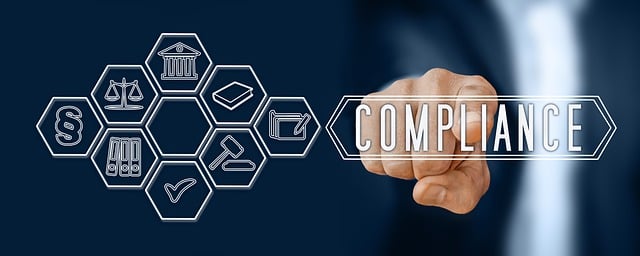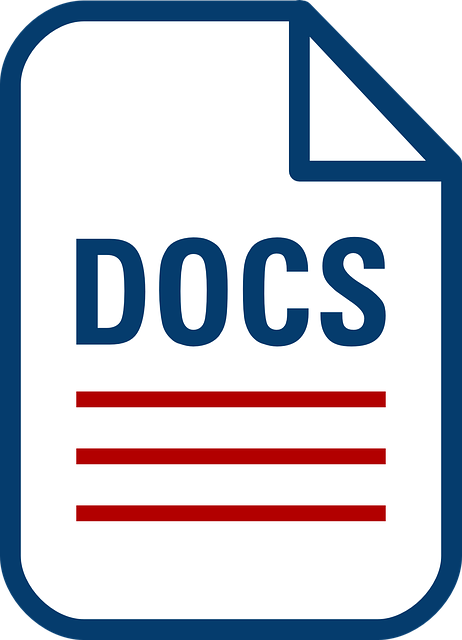In the United Kingdom, legal document translation requires a specialized approach due to the stringent compliance and regulatory standards set forth for businesses. Translation services that specialize in Compliance and Regulatory Documents UK must employ expert linguists with knowledge of both source and target language legal terminologies and idiomatic expressions. These professionals use advanced tools and glossaries to ensure consistent and precise translations, adhering to the high standards of regulatory documents. A rigorous quality assurance process involving multiple stages of review and comparison by experts within the legal field ensures that the intent of the original content is preserved, and the translated documents are legally binding and reflective of their original authority. UK translation services play a crucial role in this context, particularly when dealing with sensitive information that must comply with both UK legislation and GDPR regulations, ensuring data protection while facilitating accurate cross-lingual communication for all legal transactions within the UK.
navigator, adherence, precision, legal accuracy, compliance, UK regulations, specialized translation, document standards, linguistic finesse, certification, consistency, GDPR impact
When operating within the United Kingdom’s legal landscape, adherence to regulatory documents is paramount. This article delves into the critical role of precise translation services in ensuring that all legal texts meet UK compliance standards. We explore key considerations for selecting specialized translation providers and the implications of linguistic nuances on legal terminology. From outlining the UK’s legal document translation standards and best practices to detailing GDPR’s influence, this guide is an indispensable resource for maintaining regulatory integrity across multilingual operations. Understanding these aspects ensures that every translated document accurately reflects the original text’s intent, upholding the integrity of your business within the UK’s legal framework.
- Understanding the Necessity of Compliance in Translated Legal Documents for UK Operations
- The Role of Accurate Translation in Navigating UK Regulatory Requirements
- Key Considerations for Choosing Specialised UK Legal Document Translation Services
- The Implications of Inaccurate Translations on Legal Compliance in the UK
- An Overview of UK Legal Document Translation Standards and Best Practices
- Identifying the Most Common Types of Legal Documents Requiring Translation in the UK
- The Importance of Linguistic Nuance in Legal Terminology Translation for UK Compliance
- Certification and Verification Processes for Translated Legal Documents in the UK
- Strategies for Ensuring Consistency Across Multiple Language Versions of Legal Texts
- The Impact of GDPR on the Translation and Handling of Legal Documents in the UK
Understanding the Necessity of Compliance in Translated Legal Documents for UK Operations

When conducting business within the United Kingdom, adherence to local regulations is paramount. Translated legal documents must meet stringent compliance standards to ensure that businesses operate lawfully and effectively within this jurisdiction. The UK’s regulatory environment is complex, with a variety of statutes, common laws, and sector-specific rules that dictate how businesses must conduct their affairs. In such a context, the accuracy and legality of translated documents become critical. UK translation services play a pivotal role here, offering specialized expertise to ensure that all translated legal documents not only convey the original content accurately but also align with the nuances of UK law. This includes precise translations that reflect the exact intent and implications of the source material, as well as translations that consider the particularities of local legislation. By leveraging professional UK translation services, businesses can navigate regulatory compliance confidently, mitigate legal risks, and maintain their operational integrity within the UK market. It is through this meticulous approach to translation that companies can uphold their reputation and ensure that every aspect of their UK operations is compliant with the required regulatory documents.
The Role of Accurate Translation in Navigating UK Regulatory Requirements

Organizations operating within the United Kingdom must adhere to a complex web of regulatory requirements that govern various aspects of business operations. Accurate translation services are indispensable in this context, as they ensure that all regulatory documents are precisely conveyed into the target language. The precision of these translations is crucial for compliance, as legal texts often contain nuanced language and specific terminology that can have significant implications for legal standing and operational integrity. Translators specializing in UK translation services must not only be proficient in multiple languages but also thoroughly familiar with UK regulatory frameworks to guarantee the fidelity of translations. This is particularly important for companies engaging with diverse stakeholders, including employees, clients, and regulatory bodies, where miscommunication due to language barriers could lead to non-compliance and potentially severe legal repercussions. By leveraging expert translation services, businesses can navigate these requirements confidently, secure in the knowledge that all translated documents accurately reflect the original intent and legal obligations of the UK regulations they are subject to. This meticulous approach to translation is a cornerstone of legal compliance, safeguarding organizations from the risks associated with language barriers in regulatory environments.
Key Considerations for Choosing Specialised UK Legal Document Translation Services

When navigating the complexities of UK legal document translation, selecting specialised services is paramount to ensure compliance and regulatory adherence. The translation of legal documents requires not only linguistic precision but also an intimate understanding of UK law and its nuances. Specialised UK legal document translation services must possess expertise in the legal terminology specific to the jurisdiction and the ability to accurately convey the intent and implications of original texts. They should be well-versed in the relevant legislation, such as the Official Languages (Scotland) Act 2003 or the Written Language (Wales) Regulations 2012, which govern official document translations within the UK’s diverse linguistic landscape.
Furthermore, a reputable translation service will offer certified translations that meet the stringent standards set forth by regulatory bodies. They should provide documentation verifying the accuracy of their translations and ensuring that the translated content aligns with the legal requirements of the intended audience or jurisdiction. This commitment to quality and compliance is crucial for businesses, law firms, and individuals dealing with UK legal documents, as any discrepancies could lead to legal complications or penalties. In choosing a service, it is wise to consider their track record, client testimonials, and their approach to maintaining the confidentiality of sensitive legal information. This due diligence will facilitate a smoother process in achieving regulatory compliance with translated UK legal documents.
The Implications of Inaccurate Translations on Legal Compliance in the UK

Translating legal documents accurately is paramount for compliance with UK regulations, as inaccurate translations can lead to significant legal and financial repercussions. The intricacies of language mean that subtle nuances and precise terminology often carry heavy legal implications. When legal documents are not translated with the requisite care and expertise, the translated content may fail to convey the original intent, leading to misunderstandings or non-compliance with UK laws. This can result in legal proceedings being invalidated, contracts being unenforceable, or companies facing hefty fines or litigation. Thus, employing reliable UK translation services that specialize in compliance and regulatory documents is essential to safeguard against such outcomes. These specialized services ensure that the translations are not only linguistically accurate but also reflect the legal nuances relevant to the UK jurisdiction, thereby maintaining compliance and upholding the integrity of legal transactions across different languages and cultures.
An Overview of UK Legal Document Translation Standards and Best Practices

Navigating the complex landscape of UK legal document translation requires adherence to stringent standards and best practices to ensure compliance with regulatory demands. Translators specializing in UK translation services must be well-versed in the specific nuances of legal language, as well as the intricacies of the target language. The UK’s legal documents are characterized by their precise terminology and formal structure, which necessitates a high level of accuracy and cultural awareness during the translation process.
To maintain compliance and regulatory standards, professional translators must follow best practices that include a deep understanding of both the source and target languages’ legal vocabulary, as well as the legal systems they are operating within. Accuracy is paramount, as any misinterpretation or mistranslation could lead to legal complications or non-compliance. Moreover, translators must stay updated with the latest legislative changes to ensure that all translated documents reflect current UK laws and regulations. Utilizing certified translators and leveraging translation memory software can further enhance the quality of translations and streamline the process, ensuring that every translated document meets the necessary regulatory compliance standards.
Identifying the Most Common Types of Legal Documents Requiring Translation in the UK

Navigating the regulatory landscape in the United Kingdom necessitates precise and compliant legal document translations. Businesses operating within or across UK borders regularly encounter various types of legal documents that require accurate translation to ensure compliance with local laws and regulations. Among the most common are commercial contracts, corporate records, patents, trademarks, and shareholder agreements. These documents often contain complex terminology specific to the legal and business contexts, which demands specialized knowledge from translators. UK translation services specializing in compliance and regulatory documents provide the expertise required to translate these materials accurately and legally, ensuring that all nuances are captured and that the translated documents meet the stringent standards set forth by UK authorities. This is crucial for maintaining legal validity and avoiding potential legal pitfalls that could arise from mistranslated content. By leveraging professional UK translation services, companies can navigate the complexities of cross-border transactions with confidence, knowing their legal documents are both linguistically accurate and compliant with UK regulations.
The Importance of Linguistic Nuance in Legal Terminology Translation for UK Compliance

When businesses operate across different jurisdictions, adhering to regulatory compliance becomes a pivotal aspect of their operations. In the context of the UK, where legal documents are drafted with precise language and nuanced terminology, translation services must go beyond mere word-for-word conversion. Compliance and Regulatory Documents UK translation services must be adept at capturing the essence of legal language to ensure that translated materials accurately reflect the original intent and meaning. This is crucial as the interpretation of legal terms can significantly impact the outcome of legal proceedings, contracts, and agreements. A minor mistranslation could lead to misinterpretation of laws, leading to potential non-compliance or litigation. Therefore, it is imperative that UK translation services employ linguistic experts who specialize in legal language. These professionals are trained to understand context, idiomatic expressions, and the subtleties inherent in legal terminology. Their work ensures that translated documents uphold the same regulatory standards as their source material, thereby maintaining compliance and safeguarding businesses from legal pitfalls that could arise from linguistic discrepancies.
Certification and Verification Processes for Translated Legal Documents in the UK

When navigating the complexities of UK legal documents, compliance and regulatory adherence are paramount. Translated legal documents must undergo rigorous certification and verification processes to ensure their accuracy and authenticity. UK translation services that specialize in legal translations provide certified translations that come with a statement of accuracy, signed and dated by a professional translator who is a member of a relevant translation body, such as the Institute of Translation and Interpreting (ITI) or the Chartered Institute of Linguists (CIOL). This certification attests to the fact that the translated content accurately reflects the source document’s original meaning and is compliant with UK legal standards. Additionally, these translations often require an apostille or similar certification for them to be recognized and accepted by UK authorities or in legal proceedings. Verification processes may also involve notarization or sworn translation, where a public notary or a legal professional officially endorses the translated document’s authenticity. This dual layer of verification ensures that all compliance and regulatory documents translated into or from English are legally sound and meet the stringent requirements set forth by UK law.
Strategies for Ensuring Consistency Across Multiple Language Versions of Legal Texts

To maintain consistency across multiple language versions of legal texts, it is imperative to employ robust strategies that align with the high standards required for regulatory documents in the UK. Translation services specializing in compliance and regulatory documents must employ expert linguists who are not only proficient in the source and target languages but also well-versed in the legal terminology specific to the UK. These professionals should work within a structured translation environment that leverages translation memory tools and glossaries to ensure terms and phrases are consistently translated across all versions of the document. This approach not only guarantees adherence to the original text’s intent but also facilitates understanding among diverse stakeholders, which is crucial for legal compliance.
Furthermore, a collaborative workflow that involves multiple stages of review by subject matter experts and legal practitioners ensures accuracy and reliability. This iterative process includes peer comparisons and the use of quality assurance checks to detect and rectify any inconsistencies or errors. By implementing these strategies, UK translation services can provide translations that meet both the linguistic and regulatory requirements, ensuring that all translated documents are legally compliant and reflective of the source content’s precision and authority.
The Impact of GDPR on the Translation and Handling of Legal Documents in the UK

Organisations operating within the UK are required to navigate the complex landscape of legal documentation while ensuring adherence to stringent data protection regulations, particularly in the wake of the General Data Protection Regulation (GDPR). Translated legal documents must not only accurately convey the original content but also align with the GDPR’s principles of data privacy and protection. UK translation services play a pivotal role in this process, as they must ensure that all translated documents, including those pertaining to contracts, terms of service, and privacy policies, are compliant with both UK law and the GDPR. This dual compliance is critical, as it safeguards sensitive information and upholds the integrity of legal proceedings. Translation services must be adept at handling personal data responsibly, implementing necessary security measures, and applying linguistic expertise to maintain the original document’s intent while adhering to these regulations. The impact of GDPR on the translation process is profound, necessitating a comprehensive understanding of the regulation’s requirements and a commitment to maintaining the confidentiality and integrity of all legally significant information. In doing so, UK translation services provide assurance that legal documents are not only accurately translated but also fully compliant with the regulatory framework governing data protection, thereby ensuring the trust and security of all parties involved.
In concluding, the translation of UK regulatory documents is a multifaceted process that demands precision, expertise, and adherence to established standards. Businesses operating in the UK must prioritise compliance with legal requirements when translating documents to ensure accurate communication and avoid legal pitfalls. The use of specialised UK legal document translation services not only safeguards against non-compliance but also upholds the integrity of the original content. By implementing best practices, maintaining linguistic precision, and embracing certification and verification processes, organisations can navigate the complexities of UK regulations with confidence. Ultimately, investing in reputable UK translation services is a strategic decision that protects your legal standing and facilitates seamless operations within the UK’s regulatory framework.
